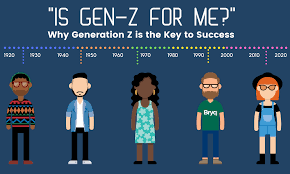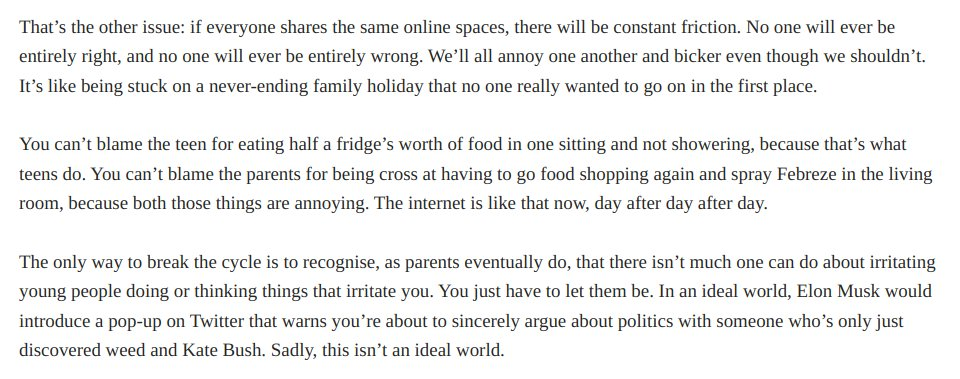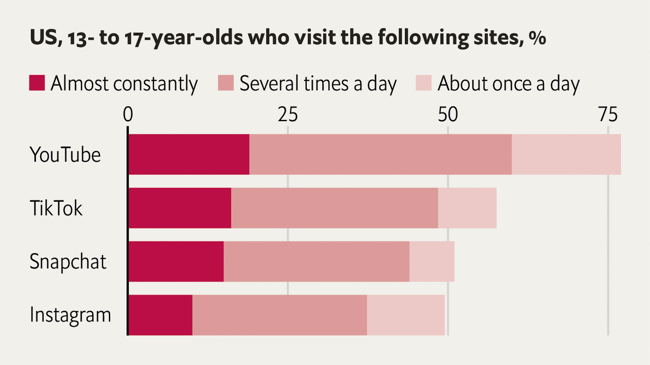Fads, Fashions, Lifestyles and Vibes – thirty years on

During 2022 I wrote several times about the new terminology that has been generated by younger generations’ (younger Millennials and so-called Gen Z or Zoomers) online celebration of an accelerated series of Fads, Fashions and Cults (the title of my book on the same topic published back in 1993). I was bemused, but not surprised that my articles and posts received little attention. Those over 40, even if active online or otherwise in touch with the wider culture, seem to pay no attention to what their children and grandchildren are saying, or perhaps just view their activities on social media as trivial, frivolous and ephemeral*. It’s slightly absurd that someone of my advanced age should be trying to record and comment on youth-based popular culture, but, just as back in the nineties, only a few fashionistas and influencers and a handful of style journalists manage to achieve any sort of critical perspective on the high-speed succession of poses, performances and pastiches that plays out on 21st century cyberspaces (and incidentally in teenagers’ bedrooms and college dorms too).
At the end of the year, however, I was asked to contribute to a major press review of these same phenomena, and discussed them with the MailOnline’s science reporter, Fiona Jackson. Fiona had picked up on recent mutations in slang and online jargon, in the novel use of emoji and punctuation, and changes, too, in the accents and intonations used on platforms such as TikTok – in particular the voice affectation known as ‘vocal fry.’
It’s interesting that Gen Z is seen as having a particularly exotic or impenetrable vocabulary, baffling and irritating parents, teachers, journalists and anyone too old to keep up. Inventing new words and changing the meanings of old ones, though, is something that each generation does (see UK millennials with their MLE – Multiethnic London English) and is a natural part of language. Accent is another essential component in curating and projecting one’s identity. ‘Vocal fry’ or ‘creaky voice’ first got noticed and was fiercely debated in the USA in 2015. The low, raspy growling voice tone favoured by female US celebrities has since been imitated by some younger people in the UK, and by British ‘influencers’ online, but not to the same extent. What I have noticed is not specifically vocal fry but something newer and more complex: a UK accent favoured by fashionable younger females which mixes a sort of high-pitched, lisping breathless ‘girly’ delivery with a lower-pitched drawl that can slide in and out of American intonations. Something like this is now prevalent, particularly on TikTok which is where Gen Z goes to influence and be influenced.

In the US now 63% of people aged 13 to 17 use TikTok weekly, a rate that now tops both Snapchat and Instagram. TikTok is also the go-to environment for the celebration of youth fads, fashions and lifestyle trends, not to mention the parodies, mash-ups, spoofs and in-jokes which are central to its video performances. Older people trying to keep up or simply to comprehend what is happening on TikTok or understand what Gen Z is saying and messaging should however beware: I have a suspicion, shared by a few other commentators, that many of the fads, fashions and trends they celebrate (they call them ‘vibes’ or ‘aesthetics’) are not really taken seriously at all by most of them, are passing fancies or simply spoofs perhaps designed to mock the tedious concerns of outdated millennials. Fashionable new ‘looks’ like so-called ‘goblin-mode’ which has, unusually, been noticed and publicised in the mainstream, have been appearing and disappearing on Gen Z platforms with a bewildering speed (see ‘cottagecore’, ‘blokecore’, ‘hag chic’, ‘frazzled English woman’, etc.).
The MailOnline article is here…
https://www.dailymail.co.uk/sciencetech/article-11541685/How-Generation-Z-changed-communicate.html
…and my articles from 2022 are here…
Gen Z, as they come of age and begin to access power and influence in mainstream society, will inevitably affect the way we collectively behave and of course communicate. But there is an interesting phenomenon that those like me who try to track slang and new language have to face up to. That is that it’s quite impossible to predict exactly how language is going change. No so-called linguistic authorities have ever been able to guess how technology and society is going to mutate, or how fast, or which aspects of human behaviour will come to predominate in the future – even in the near-future. Gen Z may settle down into family life and work and become distracted by adult responsibilities, just as we once-radical Boomers, muted, tortured Gen X and much misunderstood millennials have done before them. Or perhaps they will not, and will manage to realise the boomers’ dream of staying radical, innovative and young forever? How their destiny plays out will dictate what they say and how they say it (and they will have to find ways to negotiate their obsessions and describe their changing environments), but I, for one, don’t dare to hazard any more than that.
*She’s much younger than 40, but journalist Marie le Conte struck a contrarian note in the New Statesman, suggesting that we shouldn’t be interested in Gen Z’s predilections…

Its finger still on the pulse of the zeitgeist, the Mail followed up with a warning to older generations that Gen Z disapprove not only of their language and their emoji use, but of their gesturing too (unsurprisingly the hand-signals castigated are all part of my own sad repertoire)…
https://www.dailymail.co.uk/news/article-11627655/Generation-Z-reveal-hand-gestures-cool.html
Last summer the Daily Mash had issued another (spoof) warning to the middle-aged, this time of Gen Z‘s behaviour in the workplace…

At the end of January I talked to Karyn Hay of Radio New Zealand about Generation Zed (the preferred term in Wellington and Auckland), their language and online activities…
https://www.rnz.co.nz/national/programmes/nights/audio/2018875098/tony-thorne-gen-z-communication

In February 2023 King’s College London Faculty of Arts and Humanities, host to my Slang and New Language Archive, featured my activities in their Net Gains series…
https://www.kcl.ac.uk/is-tiktok-a-breeding-ground-for-a-mutation-of-culture
Pingback: I’m an expert in slang – here are my picks for word of the year